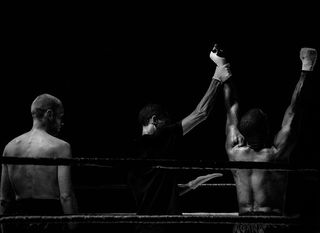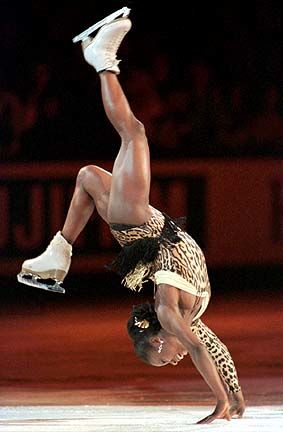Career
What It Means to Be a Loser
A new Netflix documentary series shows the power of the narratives we construct.
Posted March 20, 2019
“In the desert, if you panic, you’ll be dead in three days. Yet, the desert is not death. If you know how to live in it and interpret it, it doesn’t mean death at all.” So begins episode five of Netflix's latest documentary series, Losers. Our narrator is Mauro Prosperi, an ultramarathoner who wanders off course while competing in the 1994 Marathon des Sables, a five day, 150-mile race through the Moroccan Sahara. Prosperi’s words echo through the entire series, in which we are treated to stories of would-be losers who reinterpret their experiences for themselves and the viewer, proving simultaneously that there is life after loss and that loss does not equal failure.
In working with patients (and in trying to take a dose of my own medicine), I have learned time and again that the stories we tell ourselves about our defeats — our narratives of losing — profoundly matter. If in the face of adversity we can transform into the heroes and heroines of our own stories, then courage, perseverance, and growth are outcomes more likely than devastation, passivity, or retreat.
To get there necessitates labeling inaccurate or unhelpful beliefs as such. It demands making room for uncomfortable feelings that arise, challenging messages heard from the outside world and seeking out evidence to the contrary of long-held assumptions. It requires a dusting off, a picking up, and carrying on.

Losers provides powerful illustrations of how to reshape defeats into triumphs. Take, for example, Michael Bentt. He teaches us that loss can actually be a relief and a chance to reorient towards what matters most. Bentt’s career in boxing was never his own dream. It was his father’s. As a little boy, the will to go his own way was literally beaten out of him when he approached his dad about his wish to quit the sport. Fast forward through decades of abuse (and its psychological toll) and a WBO heavyweight championship title, and we arrive at the moment in which Bentt describes feeling liberated by a loss in which he incurs a career-ending head injury.
The end of Bentt’s competitive boxing career marks the start of a new journey. He figures out what he wants his life to be about and finds refuge in a range of creative pursuits, writing about how it feels to get knocked out, and participating in the entertainment industry as a consultant, actor, and playwright. Bentt’s story is a reminder that we cannot really win until we are making choices in the service of our values and that sometimes, losing is just the opportunity we need to give ourselves permission to do so.

In the case of the world-class French figure skater, Surya Bonaly, we learn that not living up to her own Olympic dreams of gold is a wake-up call. Despite dominating the sport with her athleticism, Bonaly never manages to fully win over Olympic judges who do not accept the black athlete as a legitimate figure skating competitor. Rather than trying to fit in, she chooses to redefine winning by standing out.
Refusing to defer to convention after years of disappointing results, in the 1998 Winter Olympics, Bonaly opts to please herself and the crowd, instead of the judges by landing a backflip on one blade (an illegal move in competition). She goes on to a highly successful professional skating career, capitalizing on her previously underappreciated talents, and encouraging other young athletes not to sacrifice their strengths for their sport. Bonaly’s narrative highlights that if we can broaden our definition of victory, we may discover a way to come out ahead.

After all, the win within the loss is in the eye of the beholder. When the Torquay United football club places second-to-last in their league, it is a major victory for the team and the local community. (Last place would have meant elimination from the league entirely.) When Aliy Zurkle returns to mush in the Iditarod for the seventeenth time, never having won it, her victory is not in finally placing first (She doesn’t.), but in facing her fears and participating in the race at all after surviving an attack by a snowmobiler the previous year. When Jack Ryan lands a spot on the Harlem Wizards after repeatedly getting kicked off of organized basketball teams, he finds his true calling in an arena that values zaniness on the court. What would it mean to cherish every single hard-earned victory for ourselves, no matter how it compared with or looked to other people?
Failure to meet expectations — our own or others’ — is one of the few certainties in life. We all have been or will be losers. But if we can learn, as Mauro Prosperi reminds us, “how to live in it and interpret it,” then what it means to be a loser can change. The beat will go on and so can we.


